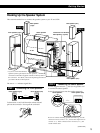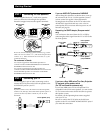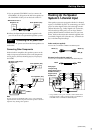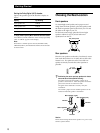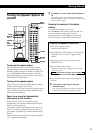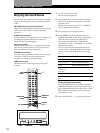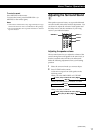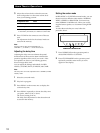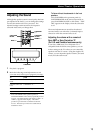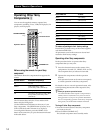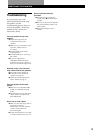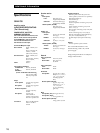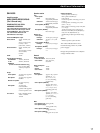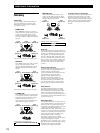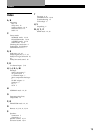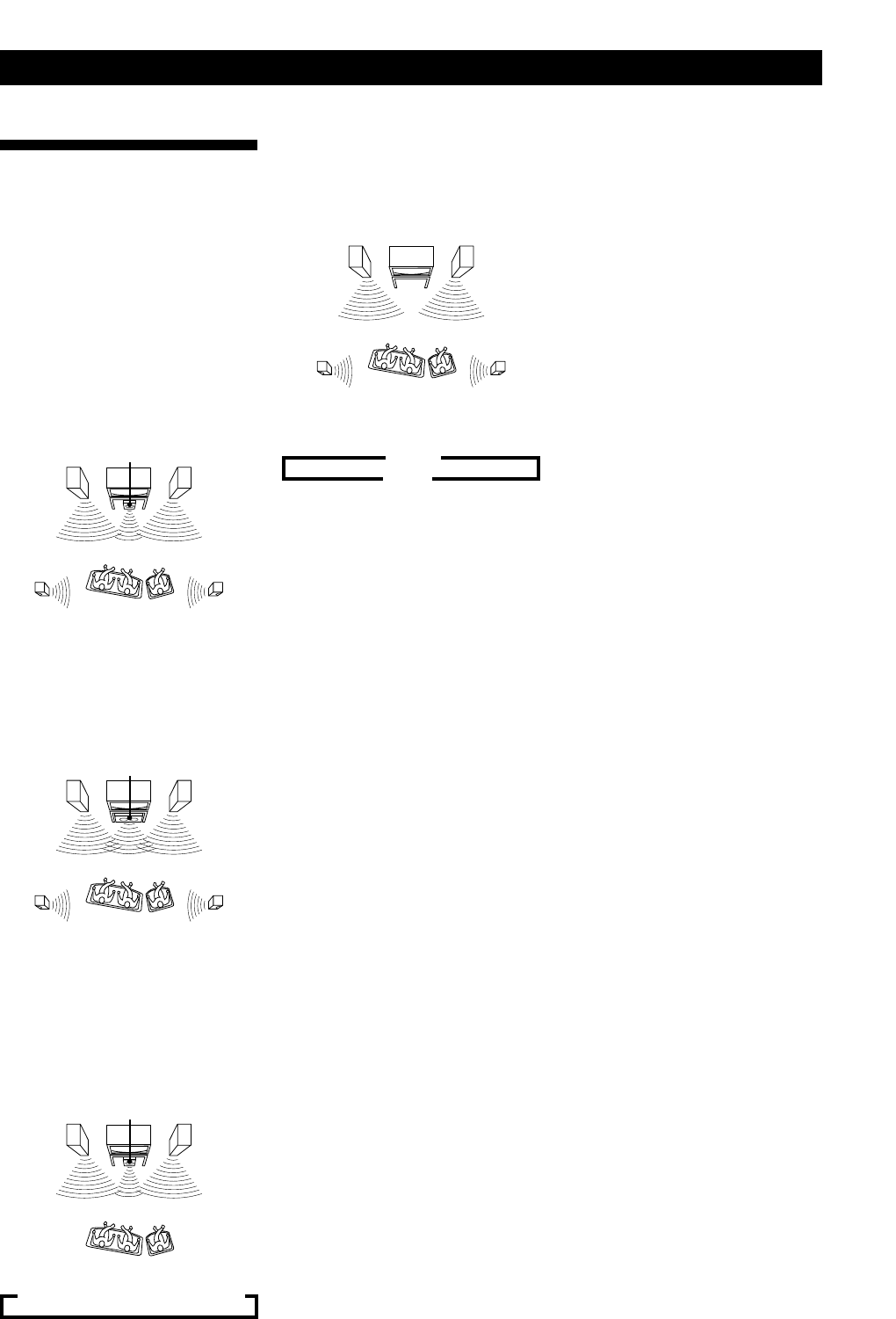
18
Additional Information
5.1-channel input (5.1 CH IN) jacks
These jacks are used to input decoded multi-
channel format audio signals (e.g., Dolby
Digital (AC-3), DTS, etc.), allowing you to
enjoy 5.1 channel surround sound. Use these
jacks to connect a multi-channel decoder or a
DVD player with a built-in multi-channel
decoder.
Rear
speaker (L)
Rear
speaker (R)
Front
speaker (R)
Front
speaker (L)
Small
center speaker
Rear
speaker (L)
Rear
speaker (R)
Front
speaker (R)
Front
speaker (L)
Center speaker
Center speaker
Front
speaker (R)
Front
speaker (L)
Rear
speaker (L)
Rear
speaker (R)
Front
speaker (R)
Front
speaker (L)
Glossary
Center mode
Speaker setting to enhance the Dolby Pro
Logic Surround mode. Select one of the
following four center modes according to
your speaker system.
• NORMAL mode
Select NORMAL mode if you connect a
small-sized center speaker to this speaker
system. Since a small speaker cannot
produce enough bass, the bass sound of
the center channel is output from the front
speakers.
The test tone is output as shown on page 11.
• WIDE mode
Select WIDE mode if you connect a center
speaker equivalent to the two front
speakers. With the WIDE mode, you can
take full advantage of Dolby Surround
sound.
The test tone is output as shown on page 11.
• 3 STEREO mode
Select 3 STEREO mode if you do not want
to use the rear speakers to output sound.
The sound of the rear channel is output
from the front speakers to let you
experience some of the surround sound
effect without using rear speakers.
The test tone is output as follows:
/ Front (L) / Center / Front (R)
• PHANTOM mode
Select PHANTOM mode if you do not
want to use the center speaker to output
sound. The sound of the center channel is
output from the front speakers.
The test tone is output as follows:
/ Front
Rear ?
Delay time
Time lag between the surround sound output
from the front speakers and that from the rear
speakers. By adjusting the delay time of the
rear speakers, you can obtain the feeling of
presence. Make the delay time longer when
you have placed the rear speakers in a small
room or close to your listening position, and
make it shorter when you have placed them
in a large room or far from your listening
position.
Dolby Pro Logic Surround
As one method of decoding Dolby Surround,
Dolby Pro Logic Surround produces four
channels from two-channel sound.
Compared with the former Dolby Surround
system, Dolby Pro Logic Surround
reproduces left-to-right panning more
naturally and localizes sounds more
precisely. To take full advantage of Dolby
Pro Logic Surround, you should have one
pair of rear speakers and a center speaker.
The rear speakers output monaural sound.
Dolby Surround
Encoding and decoding system for Dolby
Surround sound for consumer use. Dolby
Surround decodes the extra channels in the
Dolby Surround-encoded sound tracks of
movie videos and TV programs and produces
sound effects and echoes that make the action
seem to envelope you.
Dolby Digital (AC-3)
This sound format for movie theaters is more
advanced than Dolby Pro Logic Surround. In
this format, the rear speakers output stereo
sound with an expanded frequency range and
a subwoofer channel for deep bass is
independently provided. This format is also
called “5.1” because the subwoofer channel is
counted as 0.1 channel (since it functions only
when a deep bass effect is needed). All six
channels in this format are recorded
separately to realize superior channel
separation. Furthermore, since all the signals
are processed digitally, less signal
degradation occurs. The name “AC-3” comes
from the fact that it is the third audio coding
method to be developed by the Dolby
Laboratories Licensing Corporation.



